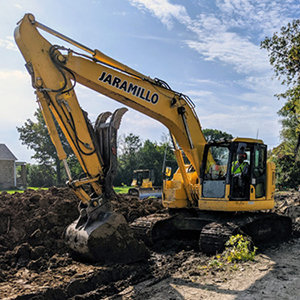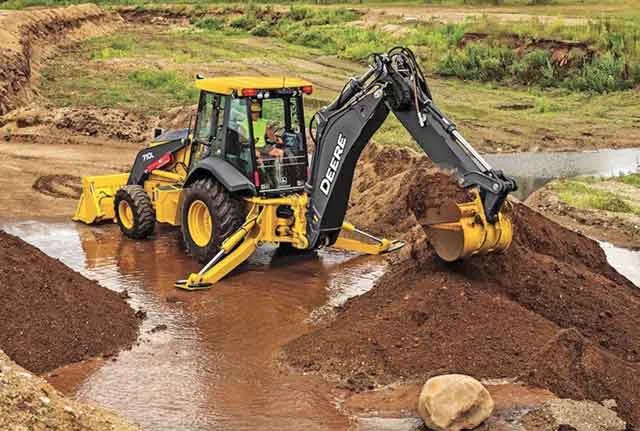Budget Friendly Lancaster Excavation - Top Quality Excavation at Competitive Prices
Budget Friendly Lancaster Excavation - Top Quality Excavation at Competitive Prices
Blog Article
Comprehensive Excavation Techniques: Understanding the Principles for Success
The careful planning, exact implementation, and careful attention to information required in excavation projects require a comprehensive technique that includes different basic aspects. The real mastery exists not merely in comprehending these fundamentals yet in flawlessly integrating them to browse the intricacies of excavation tasks with skill.
Comprehending Excavation Task Preparation

The initial stage of any type of excavation task is the preparation stage, where crucial decisions are made that can considerably impact the outcome of the job. Comprehending the project timeline, spending plan, and extent restrictions is critical for developing a detailed excavation strategy that ensures the task's success.
One secret facet of excavation project planning is the development of a detailed timeline that lays out the sequence of turning points, target dates, and tasks. By carefully thinking about all these aspects throughout the preparation phase, excavation jobs can be performed efficiently and efficiently, leading to successful end results - dump truck companies in ohio.
Dirt Evaluation and Website Evaluation
Performing thorough soil analysis and site evaluation is an important action in the prep work phase of any excavation task. Soil analysis entails identifying the composition, framework, and homes of the dirt at the excavation website. This details is critical for understanding the soil's bearing ability, dampness web content, and potential for erosion, which are vital elements in determining the excavation techniques and devices required for the project.
Site analysis surpasses dirt evaluation and encompasses a more comprehensive analysis of the total site problems. This assessment includes recognizing any type of possible risks, such as underground energies, environmental issues, or unsteady surface, that might impact the excavation process. By completely assessing the website, task supervisors can create effective excavation methods that focus on safety, efficiency, and ecological security.
Making use of advanced modern technologies like ground-penetrating radar, soil tasting, and drone studies can improve the precision and efficiency of dirt analysis and website evaluation. Investing time and sources in these initial actions can eventually conserve time and prevent pricey delays or issues throughout the excavation procedure.
Tools Selection and Use
Effective excavation projects depend heavily on tactical equipment selection and usage to make sure optimum performance and productivity. Choosing the appropriate equipment for the job is crucial in maximizing performance and lessening downtime. Elements such as the type of soil, depth of excavation, and project range play a significant role in figuring out the most appropriate tools for the task handy.

Along with picking the appropriate equipment, correct usage is key to task success. Operators must be trained to manage the equipment securely and effectively - dump truck companies in ohio. Normal upkeep checks and timely repairs assist protect against malfunctions and guarantee constant efficiency throughout the task
Safety Procedures and Laws Compliance
In the world of excavation projects, focusing on precaution and conformity with guidelines is critical to making sure a safe and secure and legally audio functional setting. Safety steps encompass a variety of methods, including performing extensive website evaluations, carrying out appropriate signs and obstacles, and giving ample safety and security training for all employees involved in the excavation procedure. Adherence to guidelines, such as OSHA requirements in the USA, ensures that the excavation job satisfies the required standards to secure workers, bystanders, and the surrounding setting.
Tracking Development and Adjusting Strategies
How can predict managers properly track the innovation of excavation projects and adapt their methods appropriately to enhance results? Monitoring development is necessary for making sure that excavation jobs remain on track and fulfill due dates. Project supervisors can use various devices and methods to track development, such as everyday progression go right here reports, routine site evaluations, and advanced surveillance innovations like drones and GPS tracking systems. By continuously keeping track of the job's advancement, managers can recognize any kind of potential hold-ups or issues at an early stage and take proactive measures to address them.

Final Thought
Finally, grasping the principles of extensive excavation strategies is essential for the success of any job. By recognizing job planning, evaluating dirt and site problems, selecting proper equipment, adhering to security guidelines, and keeping track of progress, project supervisors can guarantee a efficient and smooth excavation procedure. Executing these techniques will bring about effective outcomes and decrease prospective risks or problems throughout the excavation job.
The first phase of any kind of excavation task is the planning stage, where critical choices are made that can considerably influence the result of the job. Understanding the project extent, timeline, and spending plan restraints is crucial for producing a detailed excavation strategy that makes certain the project's success.
Exactly how can forecast supervisors efficiently track the improvement of excavation tasks and adjust their strategies appropriately to enhance outcomes? By closely keeping track of development and being willing to adapt approaches, project supervisors can boost the overall success of excavation projects.
By understanding project planning, examining dirt and site problems, picking suitable equipment, complying with safety and security guidelines, and keeping track of development, job managers can ensure a efficient and smooth excavation process.
Report this page